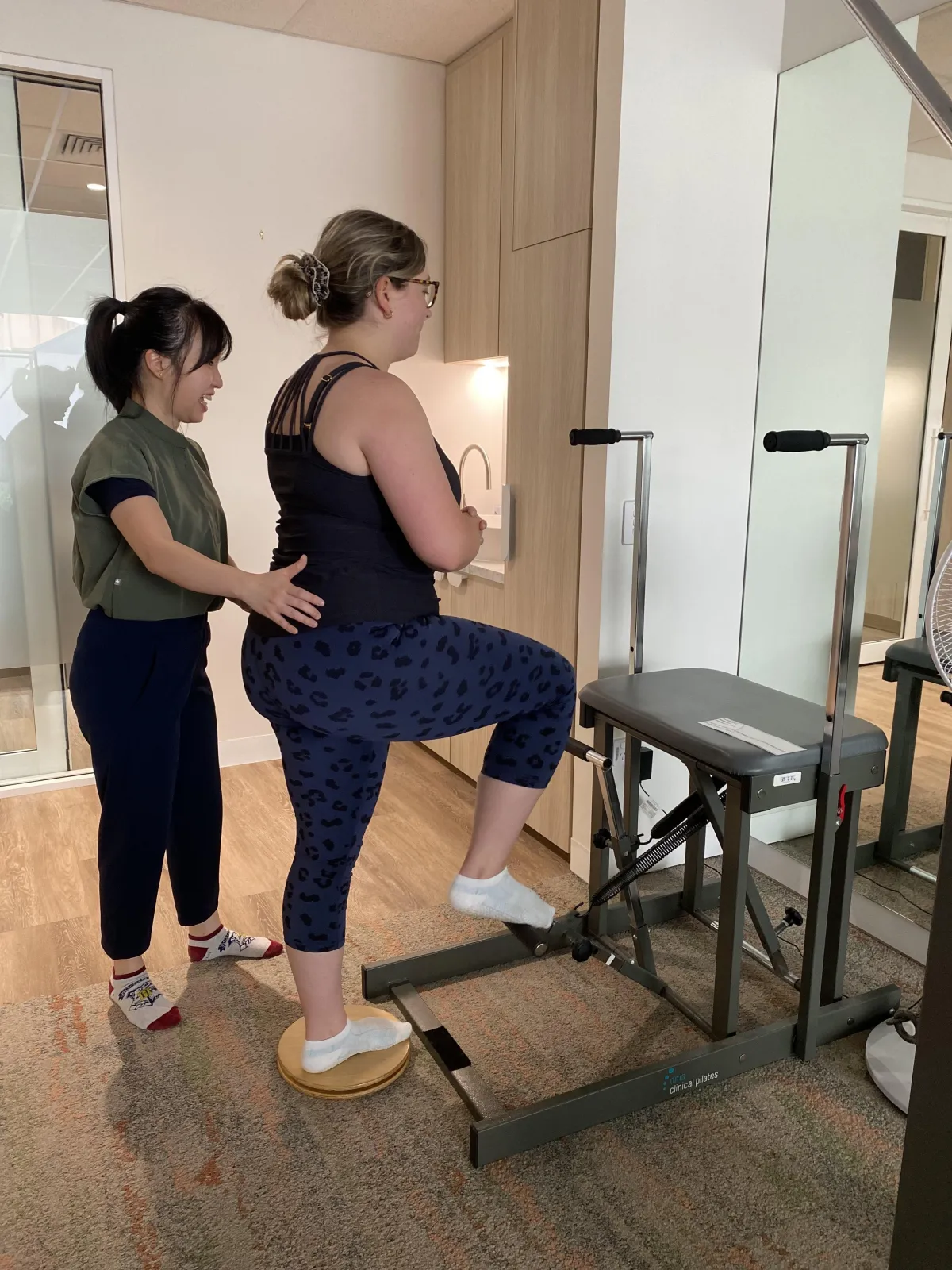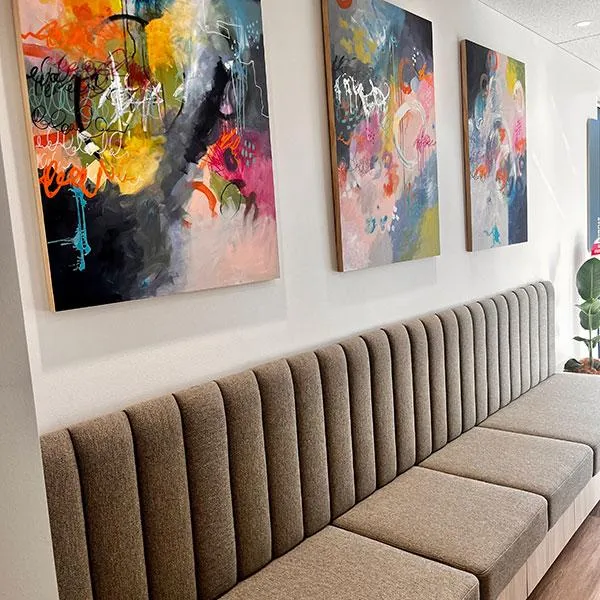
5 Reasons to see a Women's Health Physio after having a baby
Congratulations, you’ve had your baby!
You’ve been through A LOT - whether your birth experience was beautiful, emotional, unpredictable or intense, we can all agree that it is very physically demanding. Not to mention the significant changes your body has undergone in the past nine months leading up to giving birth. Whether it is a vaginal birth or C-section, all births are unique.
We therefore recommended that you see a Women’s Health Physiotherapist for a Postnatal physiotherapy assessment to ensure you are on the right track to recovery.
Here are our top 5 reasons why every woman needs to see a Women’s Health Physio after having a baby;
Pelvic Floor Assessment
Pregnancy and childbirth result in many changes in a woman’s body and place significant strain on the pelvic floor muscles.
During pregnancy, our pelvic floor muscles work harder than normal. They play a crucial role in supporting the weight of the growing baby and are affected by pregnancy hormones.
There is increased pressure on the pelvic floor due to growing baby, uterus, fluid retention as well as other reasons. The hormonal changes in pregnancy can also affect the muscles and ligaments of the pelvic floor contributing to pelvic floor weakness, urinary or faecal incontinence and discomfort, heaviness sensations or pain with sexual intercourse.
“Did you know that during a vaginal birth, your pelvic floor muscles can stretch more than three times their resting length to allow the baby to pass through?”
With all the stress the pelvic floor is put under in both pregnancy and child birth, it is so important to have a postnatal pelvic floor assessment to ensure that you are on the right path to recovery. A Women's Health Physio can assess the condition of the pelvic floor and help develop an individualised recovery plan.
Bladder and bowel health
There are so many hormonal changes during pregnancy and in the postnatal period. These can affect many parts of a woman's body including her bladder and bowel function.
It is not uncommon for women to suffer from constipation especially in the first couple of months with their new baby as their hormonal balance is off, they aren’t sleeping, eating or moving well enough. A Women’s health physiotherapist can help get this function comfortable and satisfying again often with just some simple tips.
Did you know that a breastfeeding woman DOES NOT need to excessively increase her fluid intake from the standard 1.5-2 litres/day?
Many women believe that they need to drink litres and litres of water when they are breastfeeding. This simply is not true. Your baby needs the rich hind milk at the end of a feed when the breast is almost empty of milk far more than they do the watery fore milk (except if exposed to very hot weather). Drinking too much water makes watery milk, puts the mother at risk of mastitis and of bladder issues such as incontinence and poor emptying.
A Women’s health physio can help to identify the cause of these bladder and bowel problems and get your flow and control back.
Abdominal Muscles Assessment
Diastasis of the Rectus Abdominis muscles (DRAM) refers to a widening/thinning of the connective tissue (the Linea Alba) down the middle of your abdomen that holds the two sides of your Rectus abdominal muscles (the six pack muscles) together.
During pregnancy, the Linea Alba stretches and thins to allow the muscles to separate, which reduces the strain on them as they are forced to lengthen by the growing uterus and baby. This is normal and essential during pregnancy to accommodate our growing baby, and it can take some time to recover after birth.
"It is a myth that abdominal separation is associated with increased back pain or incontinence"
There is a strongly held belief in the community that pregnancy related abdominal separation is a 'bad' thing and that a woman with a separation is at greater risk of back pain or pelvic floor problems. Recent research has confirmed this to be false. Abdominal separation may be associated with weakness but not necessarily and women with a separation may have pelvic floor issues ut again, not necessarily.
A lot of recovery of the separation will occur naturally over a twelve month period. Seeing a a Vital Core Women’s Health Physio can help by teaching you how to specifically train your abdominal muscles to hasten and maximise the recovery. This will ensure the abdominals muscles are strong and functional again for all you need to do as a mum and for exercise.
Exercise and return to running/ gym/ HIIT
“When can I start exercising? What exercises can I do? When can I go back to the gym? Can I start running? Can I lift weights? Is it too much for the body?”
We can answer all these and many other questions for you! We love helping our mums get back into exercise safely and effectively and to help them to feel strong and capable again.
At Vital Core, we believe that every pregnancy and delivery journey are different, so we provide every mum with individual guidance and treatment plans to help you achieve your goals, whether it’s returning to running, dancing, hiking or the gym.
Our aim is to help you get back to doing what you love. We will provide you with a tailored exercise program to ensure a safe and effective return to fitness. You can also join our Mums and Bubs class on Wednesdays!
Pain and Scar Management
Whether it is aches or pains from breastfeeding, carrying or lifting your cute bubba, our Women’s Health Physio can address these issues through manual therapy techniques, tailored exercises, and advice on posture and ergonomics to minimise discomfort associated with parenting duties.
Women’s Health Physio's can also provide you with techniques for you C-Section scar management, including massage and mobilisation, to reduce discomfort and improve healing.
Conclusion
Seeing a Vital Core Women’s Health Physio after having a baby can significantly enhance recovery, improve quality of life, and prevent long-term health issues. It’s an investment in both physical and emotional well-being, ensuring a smoother transition into motherhood.
If you would like to know more, please contact our friendly admin team on 83310552 or book online. We can't wait to help you through your postpartum journey!
Ask a question of Vital Core Physiotherapy
Fill in the form to request a Call From Our Team
One of our team will call you for FREE and answer any questions or concerns you may have about your condition
© 2023 Vital Core Physiotherapy





